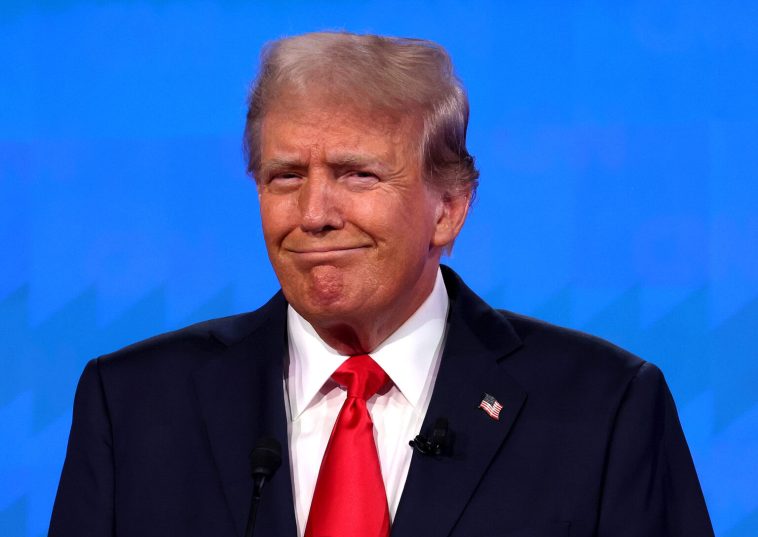As the countdown to Election Day progresses, North Carolina has emerged as a critical battleground state, heightened in importance by the fervor from both candidates. President Donald Trump and Kamala Harris have not relented in their campaign efforts within the state, each aiming to secure the Tar Heel State’s 16 essential Electoral College votes.
Despite the media’s focus on North Carolina’s so-called purple nature, a historical perspective illuminates the uphill journey Democrats face when attempting to win here. Out of the past 50 years, a Democratic victory in the state has only been clinched twice, most recently with Barack Obama’s 2008 win. The stark reality is that the state’s leanings favor a Trump victory.
However, in the previous election, Trump only managed to secure a razor-thin margin of victory over Democrat opposition, with a 1.3 percent winning difference. This slight margin could be construed as an opening for Democrats. A rather desperate stretch, given the well-established Republican dominance in the state.
Recent polling data has painted a shaky picture of the race, indicating high stakes and an uncertainty that does nothing but fuel the campaign fervor. An October Quinnipiac poll displayed a marginal lead for Trump over Harris, with Trump enjoying 49% support, Harris with 47%, and a paltry 2% resting with other candidates.
This margin of difference, albeit minuscule, still places Trump ahead of Harris. This fact hasn’t stopped the Quinnipiac poll from labeling the race as too close to call in North Carolina, furthering the already tight competition.
Contrary to the continual media narrative of a Democrat comeback, polling figures reveal a subtle decline in Harris’s performance in North Carolina from September to October. A not-so-promising trajectory for the Democrat hopeful, who should be building and not losing momentum as Election Day approaches.
The October poll also probed into voter attitudes regarding allegations brought against Mark Robinson, a Republican gubernatorial candidate. Robinson, having been accused of making inappropriate and racially charged comments online years prior, has been endorsed by Trump, an endorsement that remains unchanged despite the controversy.
Interestingly, the poll showed that a majority of respondents, 65%, had their views of Trump unphased by the allegations made against Robinson, with a small percentage even reporting improved views. Only a quarter of respondents claimed the endorsement negatively affected their perception of Trump. Once again, public opinion fails to align with the narrative being pushed by the media establishment.
A separate poll conducted by AtlasIntel at the end of September had Harris ahead by a meager 2.4 percentage point lead over Trump in a two-candidate race scenario among likely voters. This lead is so insignificant that it might as well not exist, a detail conveniently glossed over by certain corners of the media.
Similarly, an early October Reuters/Ipsos poll revealed a minuscule 3-point lead advantage for Harris over Trump, a difference that falls well within the margin of error. Those confidently citing these figures might want to remember that this poll, too, does not guarantee anything, especially given the caveat of the ‘margin of error’.
While the polls champion a riveting narrative of a tight race between Trump and Harris, the history of the competition tells a different story. Prior to his exit, Democratic candidate Joe Biden was losing significantly to Trump, forcing the Democrats to change their horse mid-race.
The media’s desire to conjure up a neck-and-neck scenario fails when confronted with the reality of the past, where Biden’s campaign proved inferior to that of Trump’s. This reality that led to the quick substitution of Harris into the Democratic equation hints at the underpreparedness and desperate fumbling within the Democratic camp.
Despite the continuous chatter regarding the leading figures in the polls, the actual determination of the US presidency falls on the individual states and the District of Columbia casting their electoral votes. This, after all, is the process that truly decides the future of leadership in the United States.
Thus, while the media may attempt to stir the pot with fresh polling data and scandal allegations, the ultimate decision rests with the American people. An inconvenient truth for some, who would rather rely on speculation than the actual electoral process.
In conclusion, while the current campaign season may present heightening drama, and despite the close race the polls claim to depict, the historical trend and the voting will of the citizens of North Carolina strongly suggest the likelihood of another Republican victory. It’s worth noting that history and the spirit of American democracy prove to have the last say, not media conjecture or polling companies.


